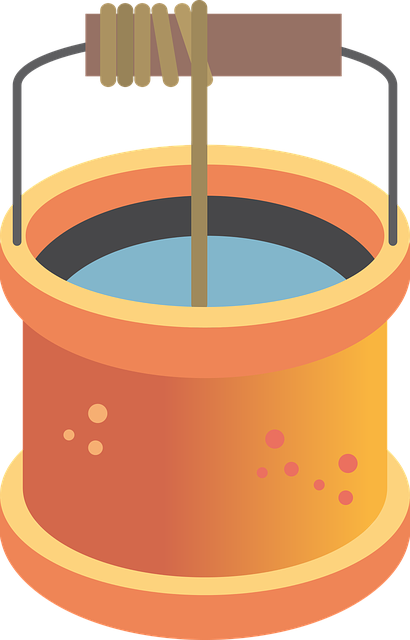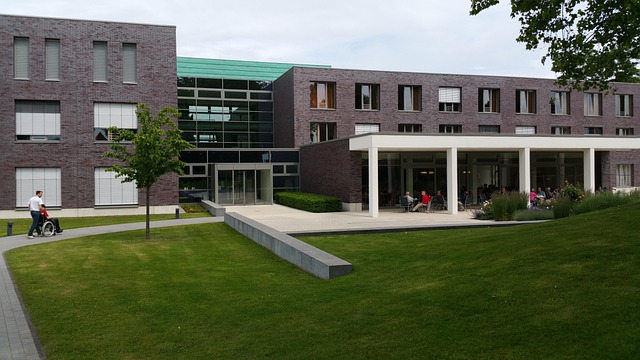Addiction among healthcare professionals is a growing concern due to demanding work schedules, high-stress environments, and exposure to trauma. Untreated addiction poses risks to both workers' well-being and patient safety. Specialized doctor addiction treatment programs tailored to the unique needs of medical workers are crucial for maintaining confidentiality, addressing job-related challenges, and preserving licenses while ensuring patient care continuity. These initiatives support early intervention, comprehensive rehabilitation, and long-term recovery, fostering a healthier, more resilient healthcare system.
Healthcare professionals, despite their dedication, face unique challenges that can lead to addiction. This article explores the prevalence of substance abuse among doctors and medical workers, highlighting the barriers they encounter when seeking help. We delve into confidential and specialized treatment options designed specifically for healthcare providers, emphasizing the importance of support networks for long-term recovery. By understanding these issues, we aim to encourage open dialogue and provide resources for those in need, ensuring access to effective doctor addiction treatment.
- Understanding the Prevalence of Addiction Among Healthcare Professionals
- The Unique Challenges and Barriers to Seeking Treatment
- Confidential and Specialized Treatment Options for Doctors
- Supporting Medical Workers: Creating a Network of Care
- Long-Term Recovery and Maintenance for Sustainable Change
Understanding the Prevalence of Addiction Among Healthcare Professionals

Addiction doesn’t discriminate, and healthcare professionals are not immune to its grasp. Despite their dedication to helping others, doctors and nurses struggle with addiction at higher rates than the general population. This is largely attributed to the demanding nature of their work—long hours, high-stress environments, and constant exposure to trauma can take a significant toll on mental health. Furthermore, the fear of judgment or potential repercussions on their medical license can create a culture of secrecy around seeking help.
The consequences of untreated addiction among healthcare workers are severe. Not only does it impact their own well-being and recovery, but it also poses risks to patient safety. Access to controlled substances or the possibility of impaired decision-making can have devastating effects on the quality of care provided. Thus, recognizing and addressing doctor addiction treatment, alongside implementing nurse addiction treatment programs and providing healthcare worker recovery resources, is crucial for maintaining a safe and ethical work environment within the medical field.
The Unique Challenges and Barriers to Seeking Treatment

Healthcare professionals and medical workers face unique challenges when it comes to seeking help for addiction due to several barriers. Firstly, the demanding nature of their work can lead to long hours and high-stress levels, making it difficult to recognize or address personal struggles. Many doctors and nurses may feel a sense of duty or fear of judgment from colleagues, which can prevent them from proactively seeking doctor addiction treatment. The fear of stigma and potential repercussions on their medical license protection is a significant concern, especially given the highly regulated nature of the healthcare industry.
Additionally, maintaining patient care responsibilities while navigating their own recovery process could seem daunting. They might worry about how seeking nurse addiction treatment will impact their performance and patient outcomes. However, with the right support systems in place, such as specialized medical worker recovery programs, these professionals can access confidential addiction treatment tailored to their unique needs, ensuring they can continue to provide quality care while prioritizing their well-being.
Confidential and Specialized Treatment Options for Doctors

For healthcare professionals and medical workers struggling with addiction, accessing specialized and confidential treatment is essential for maintaining patient trust and ensuring career continuity. Many traditional rehab centers cater to a broader range of individuals, which may not meet the unique needs of doctors and nurses who face stringent professional standards and licensing requirements. Specialized programs understand these pressures and offer tailored services that address both the addiction and any potential impact on medical practice.
Confidential doctor addiction treatment facilities often provide discreet services, ensuring privacy and protecting the medical license. These programs recognize the importance of ongoing support and may offer aftercare plans, alumni networks, and specialized nurse addiction treatment options to facilitate recovery and prevent relapse. With healthcare worker recovery as a focus, these centers help individuals reintegrate into their professional environments while maintaining patient safety and ethical standards.
Supporting Medical Workers: Creating a Network of Care

Supporting medical workers struggling with addiction is an essential aspect of fostering a healthy and resilient healthcare system. Many doctors and nurses face unique challenges on the job, leading to increased stress, burnout, and potential substance abuse. Recognizing this, dedicated programs offering confidential doctor addiction treatment and nurse addiction treatment have emerged to provide much-needed support. These initiatives aim to create a network of care within the medical community, ensuring that colleagues can access treatment without fear of stigma or repercussions.
By implementing specialized programs, healthcare organizations can facilitate early intervention and comprehensive rehabilitation for their staff. This approach not only benefits individual workers battling addiction but also positively impacts patient care and overall organizational performance. Protecting medical licenses through these discreet services is another critical advantage, ensuring that qualified professionals can regain their practice after successful recovery.
Long-Term Recovery and Maintenance for Sustainable Change

Long-term recovery and maintenance are essential components for sustainable change in doctor addiction treatment. After initial rehabilitation, medical professionals require ongoing support to maintain their sobriety and prevent relapse. This often involves tailored therapy programs, peer support groups, and lifestyle adjustments specific to their high-stress careers. Healthcare worker recovery focuses on addressing the unique challenges faced by nurses and doctors, ensuring they have the tools to navigate the demanding nature of their work without resorting to harmful coping mechanisms.
Maintaining medical license protection is another critical aspect during this phase. Addicted professionals must understand that their licensure could be at risk during and after treatment. With proper guidance, they can work towards reinstatement and take proactive measures to safeguard their careers while focusing on their well-being. This holistic approach ensures that healthcare workers not only overcome addiction but also thrive in their professions, providing quality patient care without compromising their own recovery.
Healthcare professionals facing addiction issues require accessible, confidential doctor addiction treatment tailored to their unique challenges. By addressing barriers to seeking help and fostering supportive networks, we can enable medical workers to access specialized care for sustainable recovery. Implementing these strategies is vital to maintaining the well-being of healthcare staff and ensuring quality patient care.






